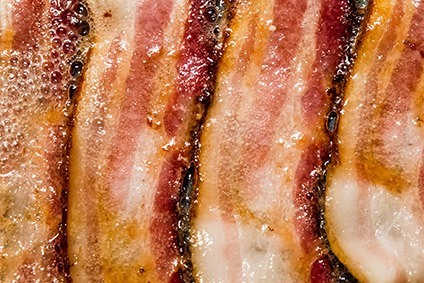
China has announced that it is to cut tariffs on imported frozen pork from 1 January in an attempt to deal with a shortfall of meat in its domestic market because of the outbreak of African swine fever (ASF).
The country’s Customs Tariff Commission of the State Council reported through state press agency Xinhua today (23 December) that import tariffs would be reduced across a range of goods from the New Year “to promote high-quality development of trade”.

Discover B2B Marketing That Performs
Combine business intelligence and editorial excellence to reach engaged professionals across 36 leading media platforms.
It said China will implement provisional import tax rates that are lower than the World Trade Organization’s most-favoured-nation (MFN) tariff rates for more than 850 commodities.
Xinhua reported the tariff changes would be made to “increase imports of products facing a relative domestic shortage, or foreign speciality goods for everyday consumption”.
Apart from frozen pork, the tariff changes will impact food items such as frozen avocados.
China is fighting a trade war with the US but faces a series of domestic challenges, none more so than the outbreak of ASF which has wiped out more than half of the country’s swine herd.

US Tariffs are shifting - will you react or anticipate?
Don’t let policy changes catch you off guard. Stay proactive with real-time data and expert analysis.
By GlobalDataThough not directly related to its trade war with the US, this latest announcement on tariff reductions may encourage those looking for signs that China is opening up its economy to foreign providers.
Tariff rates on frozen pork are due to be lowered to 8% from 12% for some countries.
The lower tariffs will benefit many of its trading partners, including New Zealand, Peru, Singapore and Pakistan.
Earlier this month, Beijing and Washington struck a preliminary deal to end their trade dispute.
And in November, China overturned a near five-year ban on US poultry imports in an attempt to deal with the meat production shortfall caused by ASF.



